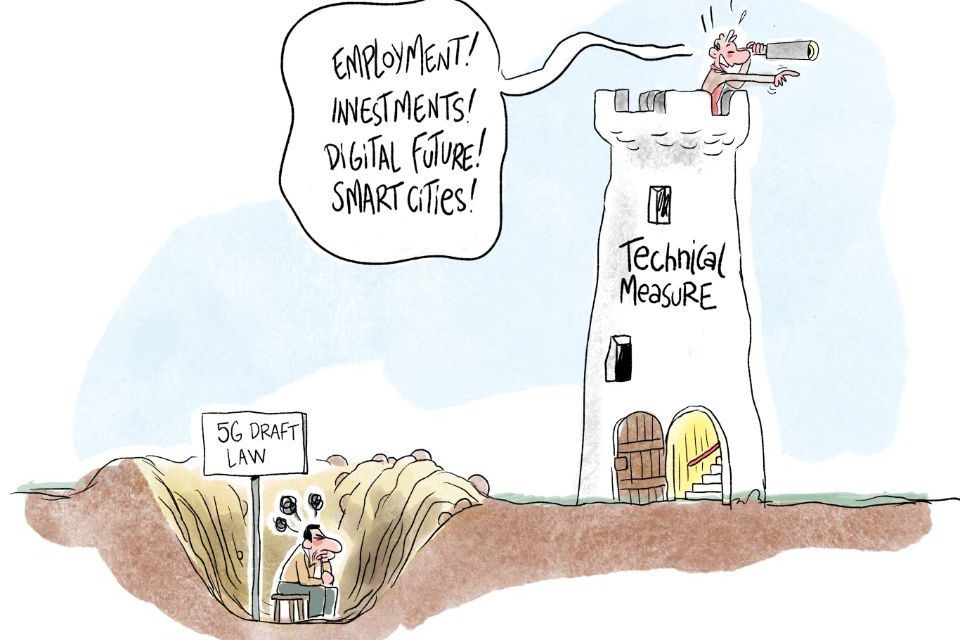AOMR says the current “5G draft law” endangers development of 5G services in Romania, asks for revaluation (advertorial)

The Romanian Mobile Operators ’Association (AOMR) criticizes the draft law on the adoption of measures regarding information and communication infrastructures of national interest and the conditions for the implementation of 5G networks. AOMR claims that the current project blocks the development of fixed and mobile communications networks in Romania and endangers the development of 5G services in Romania. AOMR sent a letter to the Ministry of Transport, Communications and Infrastructure (MTIC) requesting the amendment of the bill.
The Romanian Mobile Operators ’Association believes that the entire bill focuses on identifying eligible equipment manufacturers, rather than focusing on addressing and identifying security risks independently of the equipment manufacturer, an approach that is supported at EU level.
AOMR supports a risk-based approach and technical evidence, neutral from the point of view of equipment manufacturers.
From this perspective, the analysis of the Bill revealed the following deficiencies, according to AOMR:
a) The Draft Law, in its current form, blocks the development of fixed and mobile communications networks in Romania, while also endangering the resilience of communications networks and the development of 5G services in Romania;
b) The draft Law, in its current form, does not fully / adequately reflect / address the principles regarding the EU agenda on the development of 5G technology;
c) EU instruments on cyber security of 5G networks emphasize the technical measures that should be regulated and implemented in order to achieve the desired level of security; The draft law does not address any such technical requirements, but regulates an authorization procedure based on very broad and ambiguous non-technical criteria that does not address any of the strategic measures set out in the EU toolkit for 5G network security;
d) under the current legal framework applicable at EU level, the imposition of measures necessary to ensure the security of networks and services must include, in addition to strategic measures, a number of relevant technical measures that are the prerogative of national communications regulators. e.
AOMR considers that the proposed bill requires a structural reassessment, taking into account all the measures proposed in the EU 5G Instrument Set and the adoption of appropriate legislative measures: “In adopting such measures, the aim expressed in the Recommendation (EU ) 2019/534 on ensuring a common EU approach to cyber security in 5G networks, supporting coherence across the common market through EU policies and EU-wide coordination. “
Another proposal made by AOMR to MTIC is for this project to integrate the provisions adopted by the European Commission on the security of 5G networks: Communication from the Commission to the European Parliament, the Council, the European Economic and Social Committee and the Committee of the Regions: Security for 5G in the EU – Implementation of the EU set of measures, Com (2020) 50, as well as 5G Network Cyber Security – EU set of measures to reduce 5G risks.
The draft law was also criticized by the Romania-China Chamber of Commerce. The Chamber claims that the authorities did not carry out a full and detailed impact assessment before the public consultation on the draft law.
“The authorization criteria are opaque, non-transparent and the scope is too wide. Authorization criteria are too political and do not include technical standards and certification mechanisms, such as NESAS and the ENISA certification scheme. This will eventually trigger discrimination between producers and will damage the constitutional right to supply goods in Romania and will distort competition,” according to the address sent to the Romanian Government and MTIC.
According to the Chamber, the postponement of the launch of the 5G network will be approximately 4-7 years, and the digitalization of Romania will be postponed.















